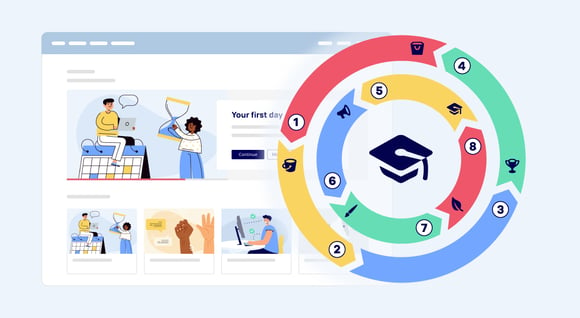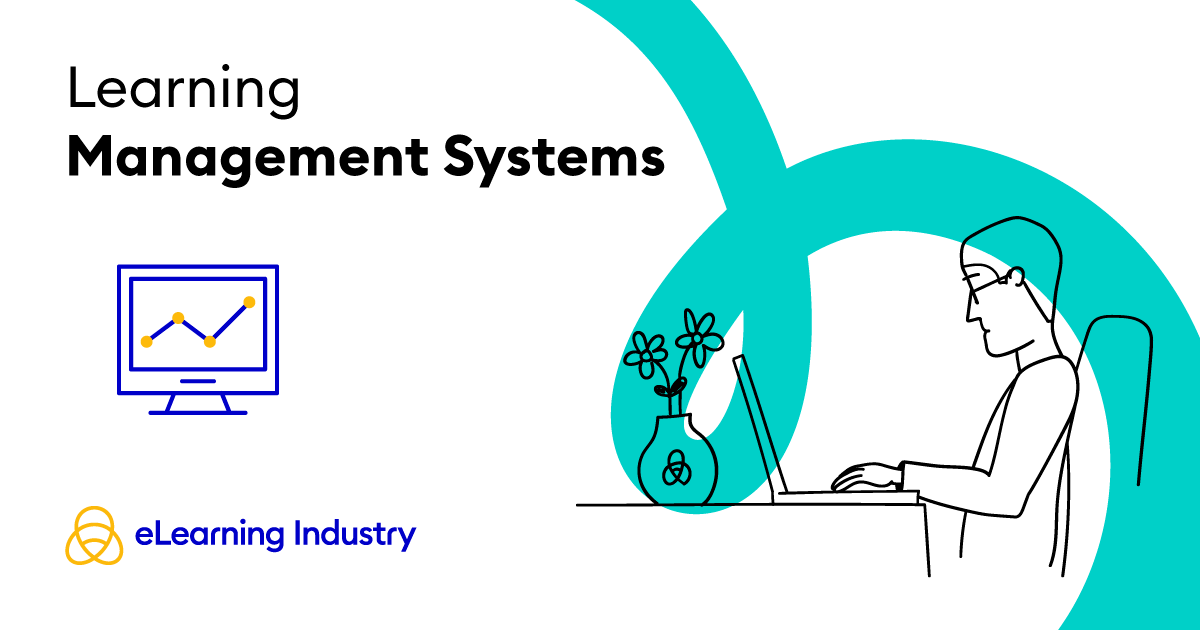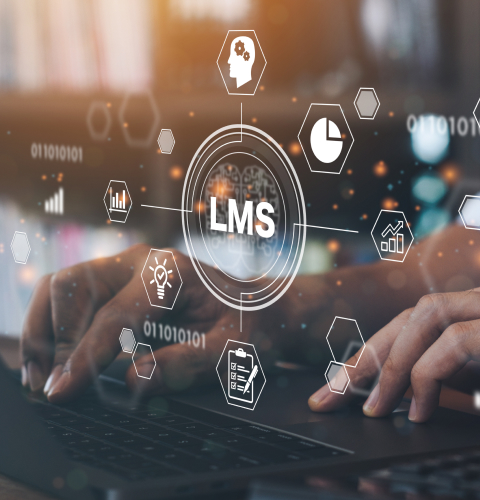Learning Management System Singapore: Making E-learning Accessible for All
Learning Management System Singapore: Making E-learning Accessible for All
Blog Article
Selecting the very best Learning Monitoring System for Your Organization
Selecting the optimum Knowing Monitoring System (LMS) for your company is a diverse choice that calls for cautious factor to consider of numerous components. From specifying specific understanding purposes that resonate with your calculated vision to examining customer experience, each element plays a pivotal role in the overall performance of the system. Additionally, recognizing assimilation abilities and guaranteeing scalability for future needs can not be neglected. As organizations strive for efficiency and development, the selection of an LMS comes to be increasingly considerable. What are the critical considerations that can affect your decision-making process?
Specify Your Discovering Goals
Specifying clear discovering goals is necessary for the successful implementation of a Learning Administration System (LMS) These goals serve as a roadmap, leading the development of material, analyses, and overall training techniques within the LMS. By establishing details, quantifiable, possible, relevant, and time-bound (SMART) goals, organizations can guarantee that the knowing experiences are aligned with their strategic goals and student demands.
Efficient knowing purposes must envelop what learners are anticipated to know or have the ability to do upon completion of a program or training program. This clarity not only aids in web content development but also assists in the examination of student development and the general performance of the LMS. Singapore LMS. In addition, well-defined purposes allow stakeholders to assess whether the chosen LMS functions and performances line up with their educational goals.
Assess Customer Experience
Once finding out purposes have actually been established, examining user experience becomes a vital next action in selecting a suitable Discovering Administration System (LMS) User experience encompasses the overall contentment and ease with which learners connect with the system. A properly designed LMS needs to promote intuitive navigation, making sure that individuals can situate training courses, products, and support easily.
To assess customer experience, think about carrying out usability testing with a representative sample of end-users. This can provide important understandings right into just how students engage with the system. Secret variables to evaluate consist of the LMS's interface style, accessibility functions, mobile compatibility, and the clearness of instructions offered. Customer feedback is crucial; collecting studies or conducting interviews can expose common pain points and locations for enhancement.
In addition, evaluate the availability of support sources, such as tutorials and aid facilities, which can improve the individual experience. The responsiveness of customer assistance is likewise critical; timely support can dramatically mitigate disappointments that individuals might encounter. Ultimately, selecting an LMS that prioritizes individual experience not only enhances the discovering procedure yet additionally cultivates greater involvement and contentment among learners.

Evaluate Integration Capacities
Acknowledging the value of smooth capability, assessing combination abilities is important when picking a Knowing Management System (LMS) An effective LMS ought to assist in interoperability with existing systems, such as Personnel Administration Solution (HRMS), Consumer Relationship Monitoring (CRM) systems, and various other instructional devices. This assimilation improves data circulation, decreases administrative concerns, and makes sure a natural knowing environment.
When analyzing an LMS, take into consideration the kinds of assimilations used. Seek Application Programs Interfaces (APIs), Solitary Sign-On (SSO) capacities, and pre-built adapters that improve integration processes. Additionally, validate the LMS's capability to integrate with third-party tools, such as material libraries or evaluation systems, which can significantly improve the discovering experience.

Take Into Consideration Scalability and Flexibility
As companies advance, the ability of a Learning Monitoring System (LMS) to scale and adjust ends up being progressively vital. A scalable LMS can accommodate growth in individual numbers, course offerings, and Read Full Article web content without endangering efficiency or user experience. As organizations broaden, whether with raised employees, new locations, or varied training needs, the LMS ought to effortlessly expand together with these modifications.
Versatility is equally essential; a reliable LMS has to sustain various learning methods, such as online, mixed, and mobile learning. This flexibility allows companies to respond rapidly to arising patterns in training and growth, guaranteeing that they can use interesting and relevant discovering experiences - Learning Management System Singapore. Furthermore, the system needs to supply customizable attributes, making it possible for companies to customize the LMS to their certain needs and branding
Moreover, an adaptable LMS should integrate conveniently with existing systems and tools, facilitating a natural discovering community. Therefore, when choosing an LMS, it is crucial to examine not just its present abilities but also its prospective to expand and adapt in alignment with the organization's calculated goals and developing learning needs. This foresight can considerably boost the lasting viability of the selected LMS.
Evaluation Costs and Budgeting
When examining an Understanding Administration System (LMS), reviewing prices and budgeting is try this out important to guarantee that the financial investment straightens with the company's calculated objectives and economic capabilities. Organizations should start by identifying the total cost of possession, which consists of licensing fees, execution costs, upkeep, and any type of added expenditures such as training and technological assistance.
It is vital to contrast various LMS choices, as rates models can vary significantly amongst vendors. Some systems may use a subscription-based design, while others might charge a single charge. Organizations needs to likewise think about the scalability of the LMS; as they expand, the expense framework may alter, influencing long-term budgeting.

Final Thought
Selecting an ideal Understanding Management System (LMS) is vital for achieving organizational discovering goals. Eventually, the appropriate LMS serves as an essential tool in cultivating an efficient discovering setting and driving business success (LMS Singapore).
Picking the optimum Discovering Monitoring System (LMS) for your organization is a complex decision that requires cautious consideration of numerous elements.Specifying clear learning purposes is vital for the effective implementation of a Learning Administration System (LMS)Once learning goals have been developed, examining user experience becomes a crucial following step in selecting an ideal Discovering Management System (LMS)As companies progress, the ability of a Learning Administration System (LMS) to scale and adjust becomes significantly essential.Picking a proper Learning Monitoring System (LMS) is vital for achieving business learning goals.
Report this page